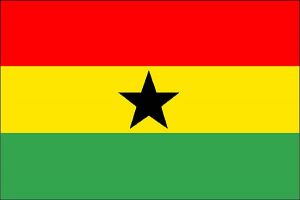Language/Ga/Vocabulary/Education
Hi Ga learners! 😊
In this lesson, we will focus on education-related vocabulary in Ga. Education plays a vital role in the development of individuals and societies. Therefore, learning and understanding the relevant vocabulary is essential for any language learner. But before we start, let's remind ourselves of some useful resources to improve our language skills:
- Visit the Polyglot Club website to find native speakers and practice with them
- Use the question feature on Polyglot Club to ask any questions you may have
- Don't forget to check out our Vocabulary page for more learning resources
Education Terminology[edit | edit source]
Let's start with some useful education-related terms in Ga:
| Ga | Pronunciation | English |
|---|---|---|
| nɛtsware | /neht-swa-re/ | student |
| ngwalɔ | /ngwah-law/ | teacher |
| adzeɛ | /ah-dzeh/ | school |
| Ɔmo dɔɔ | /oh-moh doh/ | college/university |
| yoo | /yoh/ | book |
| nɔfaa | /noh-fah-ah/ | pen |
| nɛyeli | /neh-yeh-lee/ | pencil |
| kyerɛw amansan | /kyeh-reh-w ah-man-sahn/ | blackboard |
| anom nsɛm | /ah-nohm ns-ehm/ | oral presentation/debate |
Here are some sample sentences using these terms:
- Person 1: Nuu nɛtsware yɛ wo? (/noo net-swah-reh yeh woh/) (Who is the new student?)
- Person 2: Na Ama. (/nah ah-mah/) (It's Ama.)
- Person 1: Ngwalɔ bɛ ka ho? (/ngwah-law beh kah hoh/) (Where is the teacher?)
- Person 2: Ɔmo dɔɔ loo. (/oh-moh doh loh/) (He/She is at the university.)
Numbers in Education[edit | edit source]
Numbers are essential in education. Here are the numbers from 1 to 10 in Ga:
| Ga | Pronunciation | English |
|---|---|---|
| kotoku | /koh-toh-koo/ | one |
| aboɔ | /ah-boh/ | two |
| atɛɛ | /ah-teh/ | three |
| anan | /ah-nahn/ | four |
| anumɔ | /ah-noo-maw/ | five |
| asɛm | /ah-sehm/ | six |
| asram | /ah-srahm/ | seven |
| awotwe | /ah-woh-tweh/ | eight |
| asiɛ | /ah-see-eh/ | nine |
| atanfoɔ | /ah-tahn-foh-aw/ | ten |
Here are a few examples of how to use numbers in education:
- Person 1: Nni kotoku yɛ mfa ne yoo. (/nnee koh-toh-koo yeh mfah neh yoh/) (There is one book on the table.)
- Person 2: Mma adwuma kɔ asram mu. (/mmah ah-doo-mah koh ah-srahm moo/) (I work seven hours.)
- Person 1: Aboɔ yi dyɛ wo ho bebree? (/ah-boh yee dye woh hoh be-bray/) (What is two plus two?)
- Person 2: Atɛɛ. (/ah-teh/) (Three.)
Expressions to use in the Classroom[edit | edit source]
Classrooms have specific expressions for teachers and students to use. Here are a few commonly used ones in Ga:
| Ga | Pronunciation | English |
|---|---|---|
| Me ma wo akyerɛ amansan. | /Meh mah woh ah-kyeh-reh ah-man-sahn/ | Let me write on the blackboard. |
| Ka ho kyerɛw amansan no. | /kah hoh kyeh-reh-w ah-man-sahn noh/ | Point to the blackboard. |
| Bere bɛhwɛ wo yoo ano. | /beh-reh beh-hweh woh yoh ah-noh/ | Open your book on page... |
| Bam wo anom nsɛm no nkɔ. | /bahm woh ah-nom ns-ehm noh n-koh/ | Start your presentation/debate. |
| Amina. | /ah-mee-nah/ | Amen. |
Here's a dialogue between a teacher and a student:
- Teacher: Me ma wo akyerɛ amansan. (/meh mah woh ah-kyeh-reh ah-man-sahn/) (Let me write on the blackboard.)
- Student: Wo bɛ kyɛ ka ho kyerɛw amansan no. (/woh beh kyeh kah hoh kyeh-reh-w ah-man-sahn noh/) (You have to point to the blackboard.)
- Teacher: Bere bɛhwɛ wo yoo ano. (/beh-reh beh-hweh woh yoh ah-noh/) (Open your book on page...)
- Student: Anaa ɔkɔm? (/ah-nah oh-kohm/) (Which page?)
- Teacher: Apaapa. (/ah-pah-ah-pah/) (Page 10.)
- Student: Bam wo anom nsɛm no nkɔ. (/bahm woh ah-nom ns-ehm noh n-koh/) (I'll start my presentation now.)
- Teacher: Amina. (/ah-mee-nah/) (Amen.)
Fun Facts about Education in Ghana[edit | edit source]
Here are some exciting facts about education in Ghana that you might find interesting:
- Education is free and compulsory for children between the ages of 6 and 15.
- The University of Ghana is the oldest and largest university in the country, founded in 1948.
- The Ghana Education Service has implemented a free hot meal program for primary school students to provide them with at least one nutritious meal a day.
- A common exam that all students must take in Ghana is called the Basic Education Certificate Examination (BECE), held at the end of junior high school.
Sources[edit | edit source]
- Great Vocabulary Games, Apps, and Sites | Common Sense Education
- 9 Classroom Vocabulary Games to Use with Your Students
➡ If you have any questions, please ask them in the comments section below.
➡ Feel free to edit this wiki page if you think it can be improved. 😎

